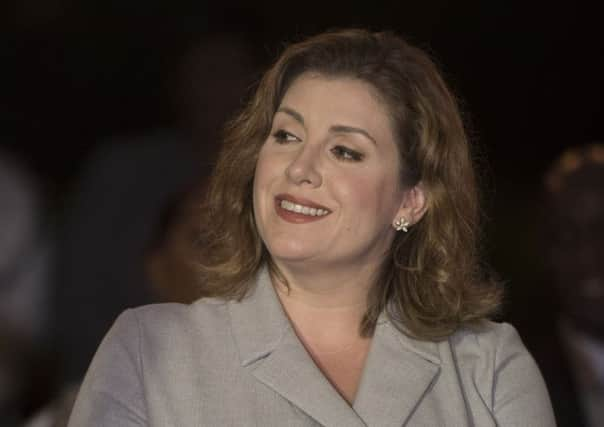Products of modern slavery '˜are staring us in face on high street'


Penny Mordaunt said “it is possible that the clothes we wear, the electronics we use and the food we eat could be the product of child and forced labour” in businesses’ supply chains around the world.
She set out how Britain would spend £40m of funding pledged by Prime Minister Theresa May in September to help more than 500,000 vulnerable men, women and children who have either survived modern slavery or are at risk of becoming victims.
Advertisement
Hide AdAdvertisement
Hide AdPart of the package will go towards targeting problem sectors, like the garment industry, fisheries and construction. Ahead of the International Day for the Abolition of Slavery on Saturday, Ms Mordaunt said: “In the world we live in, it is as easy to traffic people as drugs or guns and not enough is being done to tackle it. This is a global disgrace.
“While we continue to tackle the slavery still present in the UK, the only way for us to eradicate the practice once and for all is to tackle the problem both in the UK and at its source, stamping it out of our economies.
“The additional support we are setting out today will help vulnerable people who face the horrific and daily reality of modern-day slavery.
“It will help people who want to earn a decent living and support their families, but end up being forced, coerced and deceived into working against their will in factories, in the sex trade and in the hidden world of domestic slavery.
Advertisement
Hide AdAdvertisement
Hide Ad“Without action, the results of the modern slavery industry will continue to stare us in the face as we walk down British high streets.
“It is possible that the clothes we wear, the electronics we use and the food we eat could be the product of child and forced labour, and this undermines legitimate businesses and economic development which are lifting thousands of people out of poverty.
“It is absolutely imperative that we work both at home and abroad to make certain that we are breaking the business model of people perpetrating an evil abolished by Britain 200 years ago.”
The Ethical Trading Initiative, which is partly funded by the Department for International Development, said 77 per cent of the companies it surveyed last year thought there was a likelihood of modern slavery occurring in their supply chains.
Advertisement
Hide AdAdvertisement
Hide AdAsda, IKEA, John Lewis, Marks and Spencer, British Airways, Nestle and Tesco were among the companies willing to be named as participants in the research, although the report did not state whether they thought modern slavery could occur in their supply chains.
The package of UK aid includes £13m to prevent trafficking and forced labour among women migrant workers in South Asia, which has the highest prevalence of forced labour in the world, and will focus on victims of forced domestic work and garment manufacturing.
There is also a £20m contribution to the Global Fund to End Modern Slavery, which will be used to target problem sectors such as the garment industry, fisheries and construction, combating slavery by working with law enforcement, prevention and victim services and businesses.
A further £7m will be for victim support, awareness-raising and law enforcement in Nigeria, one of the main source countries for trafficking to the UK. UK.